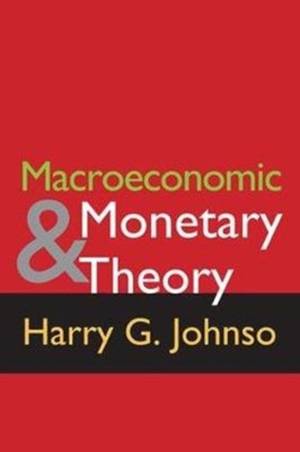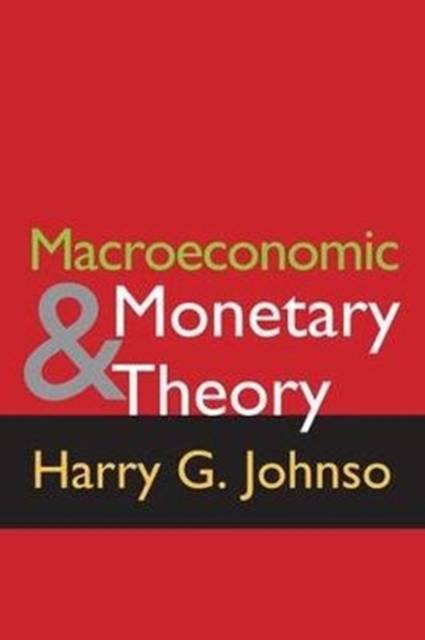
- Retrait gratuit dans votre magasin Club
- 7.000.000 titres dans notre catalogue
- Payer en toute sécurité
- Toujours un magasin près de chez vous
- Retrait gratuit dans votre magasin Club
- 7.000.0000 titres dans notre catalogue
- Payer en toute sécurité
- Toujours un magasin près de chez vous
Description
Macroeconomics is an outgrowth from the main stream of classical monetary theory following Keynes. Keynes changed the emphasis from determination of the level of money prices to determination of the level of output and employment. He also changed the key relationship from demand and supply of money as determining the price level to the relationship between consumption expenditure and income, in conjunction with private investment expenditure, as determining the level of output and therefore employment demanded. The income multiplier replaced the velocity of circulation as the key concept of monetary theory. The tendency of the past twenty-five years has been to reintegrate Keynesian and classical monetary theory into one general system of analysis. Moreover, as inflation has succeeded mass unemployment as a major policy problem, interest in classical monetary theory has revived, while Keynesians have increasingly' emphasized the monetary aspects of Keynesian theory. The proper contemporary distinction is not between two separate branches of economic theory, but between two areas of application or contexts of the theory of rational maximizing behavior. In the one (the microeconomic) context, it is assumed either that the overall workings of the economic system can be disregarded, or that the macroeconomic relationships are in full general equilibrium. In the other (the macroeconomic) context, it is assumed that the maximizing decisions of individual economic units (firms and households) will not necessarily add up to a macroeconomic equilibrium, but will produce a disequilibrium situation that will in the course of time produce changes in the individual decisions.
Spécifications
Parties prenantes
- Auteur(s) :
- Editeur:
Contenu
- Nombre de pages :
- 228
- Langue:
- Anglais
Caractéristiques
- EAN:
- 9781138527393
- Date de parution :
- 20-09-17
- Format:
- Livre relié
- Format numérique:
- Genaaid
- Dimensions :
- 163 mm x 236 mm
- Poids :
- 430 g

Les avis
Nous publions uniquement les avis qui respectent les conditions requises. Consultez nos conditions pour les avis.






